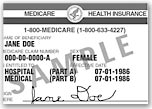
- Text Size
- Español
- Sign-Up for Reminder
- Help
- My Account
Corporate Info
- About eHealth Medicare
- Licensing & Legal
- Privacy Policy
- Site Map
Recently Viewed Plans
Recently Viewed Plans is meant to provide a browsing history of plans that you have recently seen. It is also an easy navigational tool for you to quickly get back to a plan you have recently viewed and are interested in viewing again.
What are some health care costs NOT covered by Medicare?
Medicare doesn′t cover everything. For example, Medicare doesn′t cover cosmetic surgery, health care you get while traveling outside of the United States (except in limited cases), hearing aids, most hearing exams, most eyeglasses, most dental care and dentures, and more. It also does not cover long-term care (except for skilled nursing care services that are needed daily on a short-term basis after a 3-day qualifying hospital stay). Some of these services may be covered by a Medicare Advantage Plan, such as an HMO (health maintenance organization) or PPO (preferred provider organization). A Medicare supplement can help with expenses not fully paid by Medicare.
How can I find out what drugs a Medicare drug plan covers?
Each Medicare drug plan has a list of prescription drugs that it covers, called a formulary, or drug list. Plans may cover both generic and brand-name prescription drugs. Most prescription drugs used by people with Medicare will be on a plan′s drug list. To find out which drugs a plan covers, contact the plan or visit the plan′s website. All Medicare drug plans must make sure that the people in their plan can get medically-necessary drugs to treat their conditions.
What is the difference between Medicare and Medicaid?
Some people think that Medicare and Medicaid are the same. Actually, they are two different programs. Medicaid is a state-run program that provides hospital and medical coverage for people with low income and little or no resources. Each state has its own rules about who is eligible and what is covered under Medicaid. Some people qualify for both Medicare and Medicaid.
If you have questions about Medicaid, you can call your State Medical Assistance (Medicaid) office for more information.
What payments does a person make in a Medicare drug plan?
If a person joins a Medicare drug plan he or she usually pays a separate monthly fee, or premium, in addition to the Part B premium. If someone belongs to a Medicare Advantage Plan (like an HMO or PPO) or a Medicare Cost Plan that includes Medicare prescription drug coverage, the monthly premium may include an amount for prescription drug coverage. The amount of the monthly premium isn′t affected by the person′s health status or how many prescriptions he or she uses.
Other payments a person may make include yearly deductibles, co-payments, and co-insurance. There are also costs associated with the coverage gap and catastrophic coverage.
The yearly deductible is the amount a person pays for prescriptions before the plan begins to pay. Some drug plans charge no deductible.
Co-payments or coinsurance are the amounts a person pays for prescriptions after the deductible. The person pays his or her share, and the plan pays its share for covered drugs. In some plans, a person pays the same co-payment or coinsurance for any prescription. In other plans, there might be different levels or "tiers," with different costs. For example, a person might have to pay less for generic drugs than brand names. Or, some brand names might have a lower co-payment than other brand names. Also, in some plans, a person′s share of the cost can increase when the prescription drug costs reach a certain limit.
What if a person has prescription drug coverage from a former or current employer?
If a person has prescription drug coverage from a former or current employer or union, contact the plan′s benefits administrator before making any changes to the drug coverage. Joining a Medicare drug plan could change how the person′s employer or union coverage works, both for the person and any dependents covered by the plan.
Also, if a person has prescription drug coverage from TRICARE, the Department of Veterans Affairs (VA), or the Federal Employee Health Benefits Program (FEHBP), contact the plan′s benefits administrator or insurer before making any changes. In most cases, it will be to the person′s advantage to keep the current coverage. However, in some cases, adding Medicare prescription drug coverage can provide extra coverage and savings, especially if the person qualifies for extra help.
What is my Medicare effective date?
To determine your Medicare Part A (Hospital Insurance) and Part B (Medical Insurance) effective date, refer to the lower right corner of your Medicare card or your letter from the Social Security Administration or Railroad Retirement Board.
